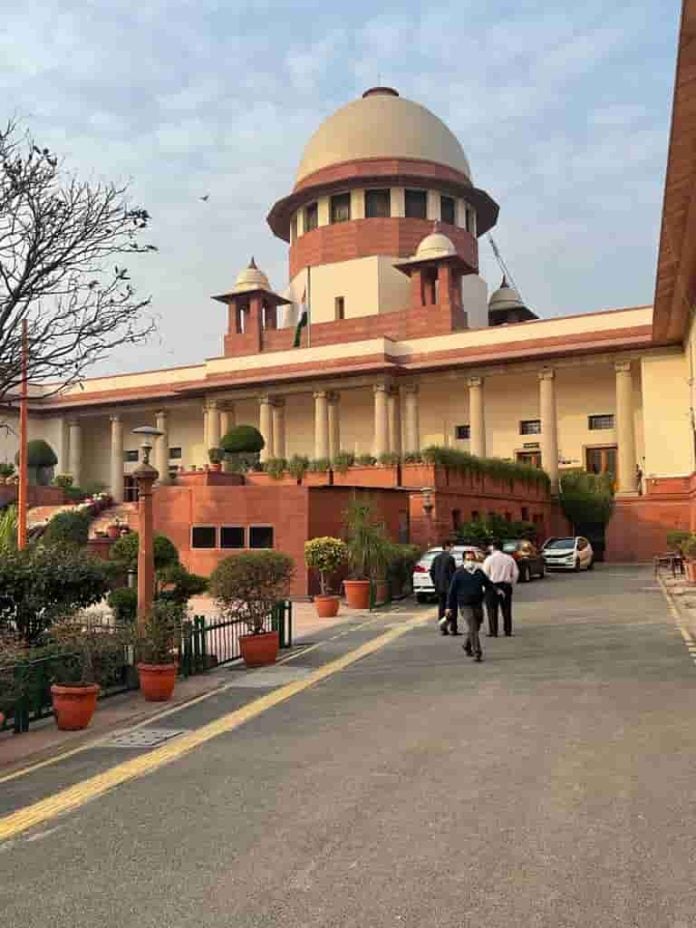Supreme Court today, while in response to an argument that the Karnataka High Court should not have interpreted the Quran for the purpose of deciding the Hijab ban case said that the High Court had no choice but to do so, given that it was argued that wearing of hijab was an essential religious practice (ERP).
The Bench of Justices Hemant Gupta and Justice Sudhanshu Dhulia were hearing the case challenging the hijab ban in Karnataka government educational institutes.
The court after hearing the Senior Advocate Yusuf Muchhala, said that one of the petitioners, has argued that the High Court should not have gone into the interpretation of the Quran.
“You went to court and said this is an essential religious practice. What option does the High Court have but to point it out? Now you say High Court cannot do this.”
To this the senior advocate replied that “It is only judicial wisdom to not touch a field in which they have no expertise. High Court when encountered with ERP should have said ‘hands off we cannot look into that’.”
During his arguments, Muchhala told the Court that the High Court wrongly noted that hijab were only being worn recently by the students of government schools and colleges.
“No denial of these averments by the State, so it’s astounding what they say in their pleadings.He further said that the petition contains stories and agony of people who were denied entry to institutes because of wearing hijab, and consequently, being denied access to education.
Justice Hemant Gupta responded, that “If these were not before the High Court, we can’t take it, but hear the other matters. We can’t hear this on new grounds. Your point is very well taken.”
The advocate said point of argument basically is the right of freedom of conscience, privacy and access to education Muslim girls’ rights of freedom of conscience, privacy, and to have access to education.
He added that “All these are grounds, there must be uniformity or else there will be disorder. Courts must guard the fundamental rights of dignity. Doctrine of proportionality will also come into play there. The lawyer said that sensitivity should be kept in mind while hearing and giving order in the case.
The petitioner lawyer said that the Cultural and religious diversity can be accommodated…If turban can be allowed, I won’t put it under discrimination but tolerance which can be there for hijab also, that won’t lead to disharmony.
The Senior Advocate said that as per the High Court, Articles 19(1) and 25 of the Constitution are mutually exclusive.
Justice Hemant Gupta replied that “Court is only speaking about freedom of conscience and freedom of religion. They are not saying Articles 25 and 19 are mutually exclusive.“
Advocate Muchhala continued arguing and said that the two rights cannot be mutually exclusive but rather compliment each other,
Advocate Muchhala questioned the bench “What is the crime these little girls are committing? Putting a piece of cloth on their head. Because of this, all rights are denied to them. One who puts hijab must not be looked like a caricature, but with dignity.”
Citing the Supreme Court’s judgment in Puttaswamy to argue that choice of dress, apparel or appearance was also part of the right to privacy.
Another important Advocate Salman Khurshid also made arguments on behalf of the petitioners. He said “There is no binary like obligatory and non-obligatory in Islam. What is in Quran is obligatory and what the Prophet interpreted it is also obligatory. This is a critical thing to keep in mind.”
Court questioned Khurshid if he was insisting that wearing of hijab was an essential religious practice, he replied,
“It is a matter of religion, culture, conscience, culture, dignity.”
Khurshid then made the bench go through verses of the Quran and pictures of burqa, hijab and jilbab to explain the difference between them.
He said that the elevated ideas given to the country by this very Court cannot be taken away. If I am at the Bar, I have to subscribe to the dress code. But does it mean I cannot wear anything other than this which is important for my culture or religion?
He also added that Hijab is a screen as per the Quran and it is religion or culture., similarly like Ghoonghat is considered very essential in UP or North India….”


